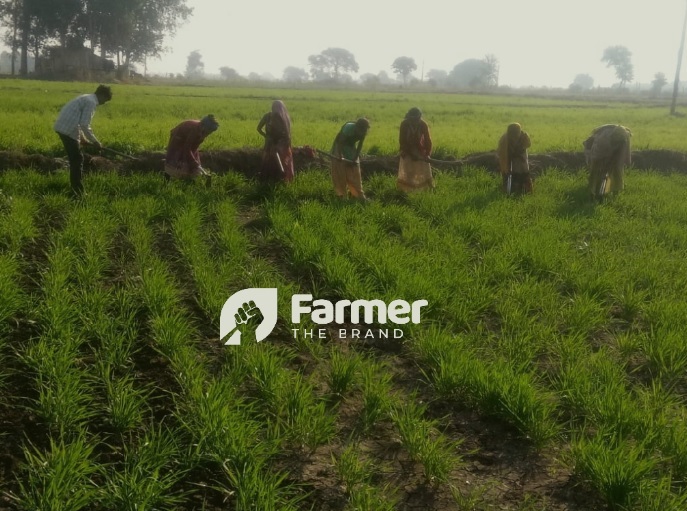
Organic Farm
Arvind Pande is a born again Organic farmer from Khamariya Village, Bankhedi Tehsil, Hoshangabad District, Madhya Pradesh, owning more than 70 acres of farming land. He used to farm extensively with Inorganic methods using all sorts of chemicals and has a few years back shifted to organic farming. To find out what happened that made him switch off from Inorganic and switch on to Organic farming please read on.
Arvind was pursuing his course in BA LLB when he decided to quit education to continue with farming which has been his passion since he was in class 8th. He initially started with Inorganic farming which earned him huge profits to start with but within a few years, slowly but all across his farms the land was turning barren. The soil was losing its fertility and he had to shift to more chemicals for fertilizers. When he began farming with inorganic methods, he used to till his land with 25 Horsepower Tractors which he owned, but in a few years these Tractors became redundant and he needed to rent 50 horsepower Tractors to work on his land. Due to these growing costs and with the chances of the land becoming totally unusable for farming, Arvind had his future in farming in doubt.
Arvind switched gears to Organic farming which soon made the soil recover and in order to continue with farming without having to worry about the quality of soil, he decided to continue with organic for the rest of his farming life. He said he had to "add culture to the soil". He used cow dung as manure, from cows which he had so far used only for dairy purposes. He recycled everything that was humanly possible to be recycled and reused. He attended lessons by Subhash Palekar (agriculturalist author of Natural Farming books) and saw many videos online of his lessons and lessons of other agriculturalists with background and experience in Organic farming. These lessons motivated him and he devoted all his energies to go Organic.
Arvind's farms produce 5 types of rice - Ram Jeera rice (sugandhit variety), Jawa Phool rice (sugandhit variety), pvm rice, sugandha rice and 1121 rice. These farms also produce sugar-free flour processed by his farm workers, natural chickpeas, moong dal, arhar dal, wheat Dalia which are their main offerings. These farms produce bansi wheat and khaplee wheat. The farms also produce, although in smaller quantities sugarcane, corn, Jamun, and mangoes. Arvind also said that he has grown Neem and Mungri trees on his farms specifically for birds. He is assisted in his farm work by full-time, part-time and seasonal workers. He uses organic and natural fertilizers only.
Arvind said he had to shift from Inorganic to Organic methods due to Inorganic farming being unfeasible and unprofitable in the long run. But his farm Organic products which are made in the natural environment, do not have a big enough market. Also due to the structure of the market system, half of his earnings are lost to the middlemen, according to Arvind. Arvind has requested our readers and the general public to buy their veggies and fruits directly from the farmers as you will get fresh ingredients for you gourmet dishes and the farmers will get a reasonable income.